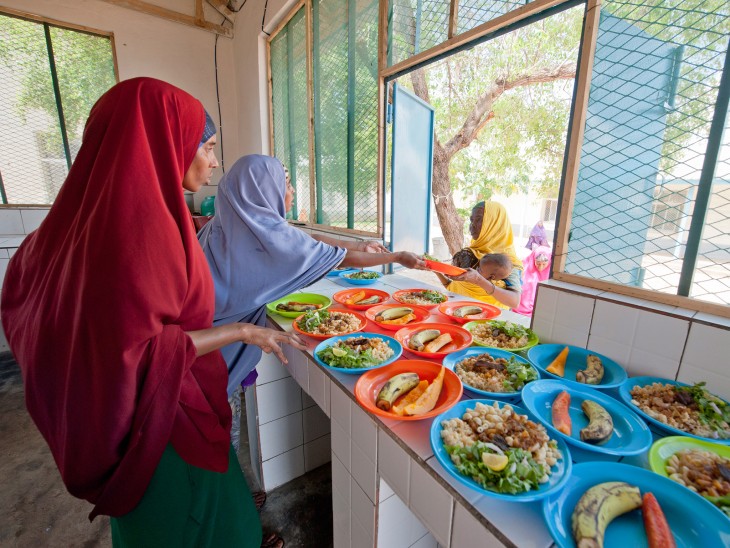Helping mothers improve child nutrition in Somalia

 Somalia has been ravaged by decades of armed conflict which has disrupted livelihoods and thrown the social fabric into disarray. Seasonal occurrences of drought and floods deepen the crisis by creating an acute food shortage in parts of the country.
Somalia has been ravaged by decades of armed conflict which has disrupted livelihoods and thrown the social fabric into disarray. Seasonal occurrences of drought and floods deepen the crisis by creating an acute food shortage in parts of the country.
Children, especially those under five, are susceptible to the resulting inadequate diet and associated diseases; left unchecked, such malnutrition can be fatal.
Maryan, 23 (not her real name), has brought her 9-month-old baby to Baidoa Regional Hospital. The baby seems weak and is half-asleep cradled in her arms.
“He has been ill for a long time. I have been to a number of clinics but nothing seems to work. He has now been admitted here at the hospital, I pray he recovers.”
Supplementary feeding
At the Baidoa Regional Hospital Nutrition Stabilization Centre, Zahra’s baby will be given daily supplementary feeding rations and treated for any related diseases. He will stay in this feeding programmeme until he attains the ideal weight.
ICRC committed to support Kismayo Hospital’s inpatient therapeutic feeding programme (Stabilization Centre) after the untimely departure of Médecins Sans Frontières (MSF) from Somalia in August 2013. It began a similar programme at the Baidoa Regional Hospital in May 2015.
Malnutrition is a widespread problem among children in Somalia. It is mostly due to lack of food and commonly held misconceptions about feeding practice.’
Maryan stopped breastfeeding her baby and is not willing to take it up again. There is a likelihood she could be pregnant and fears that breastfeeding will harm her unborn child.
Inpatient programme
“There is a lack of knowledge on children’s nutritional needs. It is important the programme works with the mothers and care givers to instill proper feeding practices,” says Kristy Manners, an ICRC delegate responsible for the nutrition programme.
At the centre, Maryan will be advised on proper feeding habits and the importance of breast milk to her baby’s health. Her case highlights the need for an inpatient programme where the mother interacts regularly with the nutrition personnel while the baby is recovering.
The Baidoa Hospital Stabilization Centre provides three meals a day for the mothers and care givers throughout the child’s recovery period.
The number of patients visiting the centre has tripled since it became fully operational. This is attributed to the holistic approach the programme takes to support both the child and mother or care giver.
According to international organizations, nearly 200,000 children in Somalia are malnourished, of whom close to 38,000 are acutely malnourished and in critical need of therapeutic feeding and medical treatment. The two centres mentioned, though insufficient on their own, provide a critical venue for this vital care in the South and Central region of Somalia.
Source: ICRC